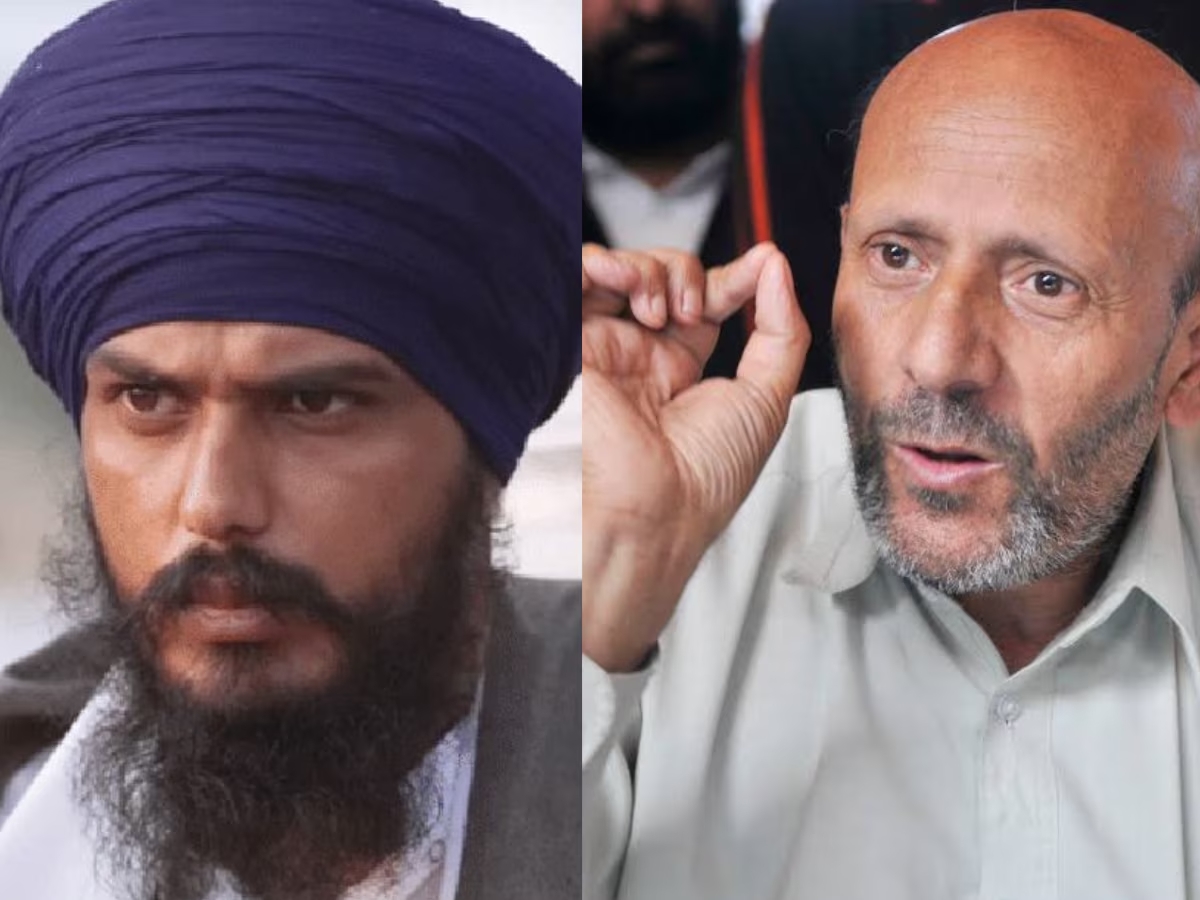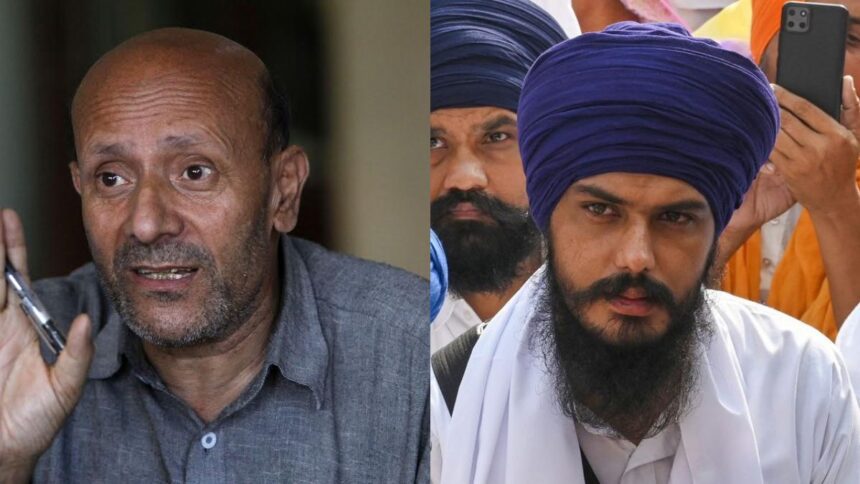Another contender emerged victorious, dubbed a religious extremist. All of them emerged victorious against candidates from mainstream and established parties while running as Independents.
Punjab Waris Amritpal Singh, the chief and religious preacher, defeated Khadoor Sahib in Punjab and is currently detained in Dibrugarh jail. Sarabjit Singh Khalsa became victorious from Faridkot. He is the son of Beant Singh, the man who killed former prime minister Indira Gandhi. In Baramulla, Engineer Rashid—who is being held in Tihar jail on terror funding charges—overcame Omar Abdullah, the former chief minister of J&K. Their successes demonstrate how conventional parties have been unable to connect with the local populace and resolve their particular complaints.

Source: India.com
Candidates from the Congress, AAP, and Akali Dal were soundly defeated by Amritpal Singh and Sarabjit Singh. In the past few years, Punjab’s social and political landscape has changed. Even though the insurgency led by Bhindranwale stopped in the 1990s, the state has continued to struggle with difficulties stemming from the militancy, including rampant drug addiction, unemployment, and economic collapse. In certain quarters, the Akali Dal and BJP’s rupture may have shed some light on the sectarian foundations of politics.
The AAP’s ascent caused a split in several areas of mainstream politics. The drug epidemic in the state was one of the major themes that Amritpal Singh had brought up both during the campaign and prior to his imprisonment last year. Punjab is affected by the 1984 anti-Sikh riots, the ongoing detention of several Sikh political prisoners, and the sharing of water with Haryana.
Source: NDTV
Rashid’s triumph in Kashmir also represents a rejection of traditional politics. Mehbooba Mufti, the former chief minister and face of family politics in Kashmir, lost in Anantnag-Rajouri. In the state where the federal government has not yet fulfilled its promises of statehood and assembly elections, there was a high level of polling. Developmental promises have also not come to pass.The results of the vote in Kashmir demonstrate the people’s disenchantment with the way politics has been conducted there, as well as their faith in democracy.
All three of the victors are outside the political system and are considered radicals or hardliners in the traditional sense. Nonetheless, a message has been delivered by the voters who chose them. That is something to pay attention to. The problems that led to the victors’ success must be resolved, and they must be accepted and integrated into the system. Only in the context of a parliament and democracy, which softens and reconciles disagreements and opinions, can this be accomplished.
What do you think about this? Comment below.

